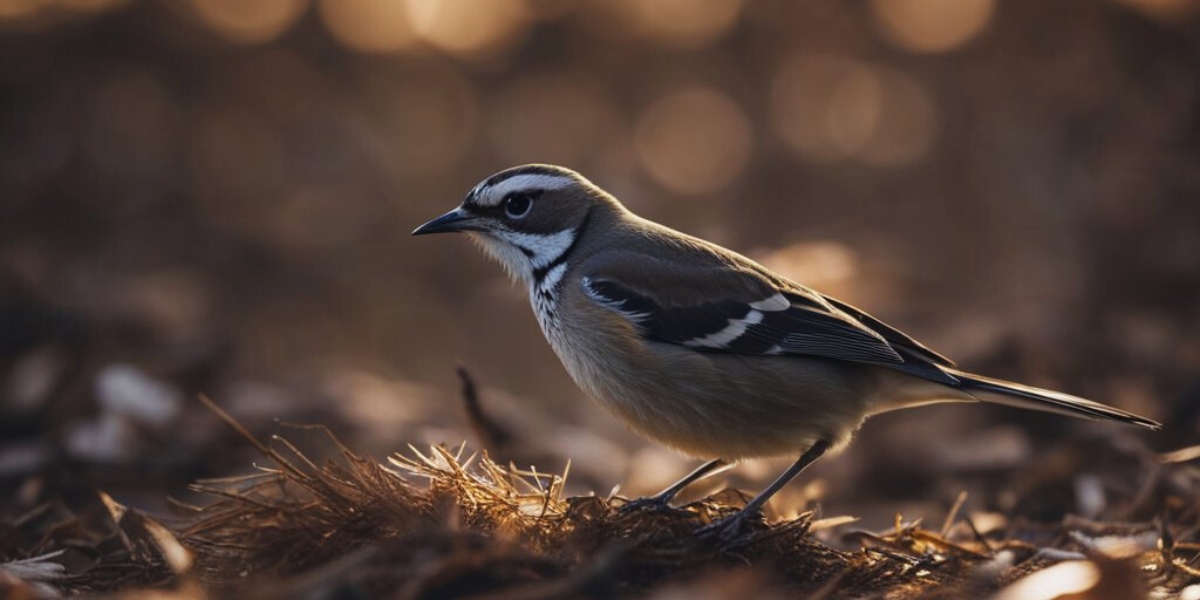The sudden death of a beloved bird can be heartbreaking for any pet owner. Determining the exact cause requires some investigation, as there are many potential factors that could be at play. Proper care and preventative measures are key to keeping birds healthy and avoiding premature death. This comprehensive guide examines the most common reasons behind bird fatalities and provides bird owners with tips to identify issues early and improve their pet’s lifespan.
Ensuring Proper Nutrition
Providing the right diet is crucial for a bird’s health and longevity. An imbalanced, nutrient-deficient, or contaminated diet can have serious consequences.
Components of a Balanced Diet
Birds require a balanced mix of seeds, pellets, fruits, vegetables, and quality protein sources. The exact nutritional needs vary by species. Research what foods your particular breed thrives on and make these the staples of their diet. Having diversity also ensures they get all the necessary vitamins, minerals, and nutrients.
Freshness is Critical
Stale, moldy, or spoiled food can make birds ill. Always remove old food daily and replace it with fresh items. Store bird food properly in airtight containers to prevent it from going bad prematurely. Never feed birds anything that smells odd or looks unappealing, as it could contain dangerous toxins.
Proper Hydration is a Must
Ensure clean, fresh drinking water is always available. Monitor intake levels and watch for signs of dehydration, like lethargy and dry skin. Offer mist baths for extra hydration. Keep water bowls clean to prevent the spread of bacteria. Avoid letting water sit stagnant for prolonged periods.
Housing Environment and Setup
In addition to diet, birds need the proper housing environment to thrive. An unsuitable habitat can cause them significant stress.
Ideal Enclosure Size and Layout
The cage or aviary must be an appropriate size and layout for the specific bird species. Overcrowding induces stress. Ensure enough space for free-flying and flapping wings. Have proper perches, toys, nesting boxes, and hiding spots. The setup should mimic their natural wild habitat.
Optimal Temperature and Humidity Control
Birds are sensitive to temperature and humidity fluctuations. Provide heating and cooling mechanisms to maintain optimal conditions. Drafty areas, dampness, and rapid changes in the environment can make them ill. Monitor levels daily and adjust as needed. Proper ventilation is also critical.
Cleanliness and Sanitation
A dirty cage allows dangerous bacteria, fungi, and parasites to accumulate. Deep clean the habitat weekly with bird-safe disinfectants. Spot clean daily by removing soiled substrate, leftover food, and droppings. Keep food and water bowls germ-free. Quarantine new birds before introducing them.
Preventing Common Avian Diseases
Infectious diseases are a major cause of death in birds. Being aware of the most common illnesses and taking preventative steps is key to keeping birds disease-free.
Safeguarding Against Infectious Diseases
Several dangerous contagious diseases affect birds, including avian influenza, psittacosis, aspergillosis, and more. Isolate any bird showing symptoms. Disinfect their housing to prevent its spread. Ask avian vets about protective vaccines. Some illnesses, like psittacosis, can even spread to humans.
Eliminating Parasitic Infestations
Internal and external parasites like roundworms, tapeworms, mites, and lice can infest birds and gradually weaken their health. Use preventative parasite control treatments recommended by your vet. Make sure to properly sanitize the habitat to remove dormant eggs and larvae.
Diagnosing Non-infectious Issues
Diseases are not the only cause of health problems. Other issues, like nutritional deficiencies, organ failure, egg binding, and more, can also be fatal. Know your bird’s normal behavior so you can identify when something is wrong and seek medical help.
Recognizing and Reducing Stress
Stress is another major contributor to decreased immunity and death in birds. Know what causes stress and how to minimize it.
Signs of Stress in Birds
Indicators of stress include increased aggression, excessive vocalization, changes in droppings, feather plucking, a lack of appetite, and lethargy. React quickly to prolonged changes in normal behavior.
Common Sources of Stress
Stress usually results from improper habitat, lack of social stimulation, inconsistent schedules, loud environments, an improper diet, a lack of sleep, and poor handling techniques. Minimize these triggers.
Effective Stress Relief Methods
Ways to reduce stress include providing a roomy, enriching habitat, one-on-one interaction, relaxing music, cage covers for darkness at night, establishing a routine, housing birds in compatible pairs, and more.
Importance of Avian Veterinary Care
Having an avian vet is crucial for preventing issues through regular checkups and addressing emerging health problems promptly. This can significantly improve the lifespan.
Schedule Regular Preventative Checkups
Wellness exams allow vets to assess overall health, recommend supplements if nutritional deficiencies are suspected, run diagnostic tests, provide parasite prevention treatments, update vaccines, identify signs of illness early, and more. Annual visits are recommended at a minimum.
Recognizing Symptoms Needing Emergency Care
Seek immediate vet assistance if you notice lethargy, difficulty breathing, drastic appetite loss, inability to perch, swollen eyes or nose, head tilting, seizures, diarrhea, vomiting, or substantial blood loss. These all indicate a potentially critical problem needing urgent attention.
Choosing a Qualified Avian Veterinarian
Find a vet specializing specifically in birds, not just general pets. Ask about your experience handling your particular species. Ensure they have avian-specific equipment and facilities. Discuss any concerns transparently to get the best care.
Embracing Responsible Bird Ownership
Being a dutiful caretaker means making a lifelong commitment to properly caring for birds’ extensive needs. Educate yourself extensively beforehand on your breed’s requirements and your ability to meet them.
Prioritizing Research and Preparedness
Thoroughly research bird species-specific needs for habitat, space, enrichment, nutrition, climate, handling, grooming, healthcare, expected lifespan, and temperament ahead of acquiring the pet. Unexpected complications can arise if they are not prepared to address their lifelong needs.
Practicing Ethics in Sourcing Birds
Obtain birds from reputable breeders with safe, humane practices. Avoid supporting disreputable sellers offering wild-caught birds. Adopt shelter birds when possible. Do not casually purchase birds as spur-of-the-moment gifts.
Providing Long-Term Commitment and Care
Birds are incredibly long-lived creatures. Be prepared to responsibly care for them for decades, potentially. Have an emergency plan if you are unable to provide care due to life changes. Never impulsively abandon or neglect birds once the novelty wears off.
People Also Read:
Conclusion
A sudden loss of pet birds can feel emotionally devastating. By taking proactive measures to optimize their diet, housing, disease prevention, stress levels, and medical care, however, caring owners can significantly improve their lifespan and minimize the risk. Provide your feathered companions with the best shot at a long, healthy life by incorporating proper care methods into their daily routine and seeking prompt veterinary care at the first signs of illness. With attentive, dedicated ownership, your beloved birds can remain happy members of your family for years to come!

